Lyrica was developed by Pfizer for the treatment of epilepsy, neuropathic pain, and generalized anxiety disorders. The active ingredient is pregabalin, an analogue of gamma-aminobutyric acid (GABA). In addition to analgesic and anticonvulsant effects, the drug affects the brain opioid receptors, relieving withdrawal symptoms in narcological practice.
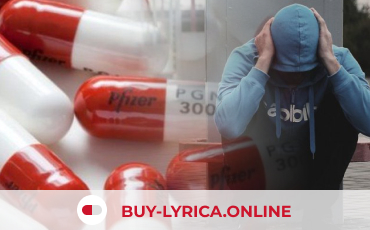
Lyrica was developed by Pfizer for the treatment of epilepsy, neuropathic pain, and generalized anxiety disorders. The active ingredient is pregabalin, an analogue of gamma-aminobutyric acid (GABA). In addition to analgesic and anticonvulsant effects, the drug affects the brain opioid receptors, relieving withdrawal symptoms in narcological practice.
Why is Lyrica a drug?
Specialists believe that taking Lyrica in therapeutic doses up to 600 mg per day with gradual withdrawal of the drug before the end of treatment is not dangerous. In this case, the probability of addiction development is minimal, even with prolonged use of the drug. But pregabalin is not always taken in the recommended doses and under a doctor’s supervision.
Uncontrolled taking of Lyrica leads to drug addiction. Persons with previous chemical addictions are predisposed to it, but for some reasons they do not wish to see a narcologist. After becoming familiar with the drug, a person understands that the action of pregabalin can go beyond the therapeutic possibilities and lead to the following effects:
- mitigation and management of withdrawal symptoms;
- achieving euphoria;
- enhancing the recreational effect of other drugs (opiates);
- prolonging the effects of ethyl alcohol and other psychoactive substances (surfactants).
The narcotic effect of Lyrica is similar to that of opiates, although the drug does not belong to the list of these narcotic substances. Under the “high” there is an unusual feeling of relaxation, calmness and euphoria, and in 2010, doctors recognized the narcogenic potential of pregabalin, so the drug can be dispensed from pharmacies today only with a prescription. Addiction develops in a short time and is characterized by the following symptoms:
- Irresistible craving and inability to control the intake of the drug;
- Withdrawal syndrome – a complex of vegetative, mental and somatic disorders;
- Tolerance to pregabalin – the need to increase the dose to achieve the narcotic effect due to gradual addiction to the drug;
- Progressive loss of any interest in using Lyrica;
- Inability to give up the medication even when there is a clear deterioration in health.
The listed points prove that Lyrica is a drug. Thus, pregabalin has moved from the realm of medicine to the drug environment.
What is the narcotic effect
The psychotropic effect of Lyrica has not been fully studied due to the relative novelty of the drug. In therapeutic doses, the drug affects the opioid receptors of the brain, relieving pain and preventing the development of seizures, while causing euphoria, which is listed as a “frequent side effect” in the drug’s leaflet.
When taking the drug uncontrolled, the number of receptors in the brain that respond to the “happiness hormones” increases. Due to this, the addict experiences maximum pleasure from pregabalin, and the endorphins normally synthesized in the CNS without the surfactant become insufficient. In the absence of the next dose of Lyrica, the brain goes on “strike”, sending painful impulses to all systems of the body. This is the classic scheme of forming physical dependence on pregabalin.
Subjectively, there are many positive feelings when using Lyrica recreationally. They can be compared to the effect of coming. An increase in physical stamina and mental performance immediately after taking Pregabalin has been proven. As an example, experts cite the case when under the influence of Lyrica, a man covered a distance of 40 km and 2 hours later presented a business plan developed by himself to an audience of 300 people.
In doses above 600 mg, the drug has a pronounced anti-anxiety effect, increasing the mood, sociability and social activity of the individual. A burst of endorphins removes internal complexes and cramps, and the previously shy person becomes a leader even in unfamiliar groups. In the same dosage, pregabalin causes bright hallucinogenic reactions without any sense.
On average, narcotic intoxication lasts for 6-7 hours, but if you combine it with other psychoactive substances, the effect of prohibited substances is significantly prolonged. In addition to the above-mentioned signs of mental changes, after taking a dose there are marked disturbances in coordination of movement and desire to take an upright or sitting position, rapid change of mood and unmotivated outbursts of rage, which replace euphoria and empathy.
Signs of addiction
At the first episodes of using Lyrica, addiction is almost imperceptible outwardly. The situation is aggravated by the lack of tests sensitive to this drug – it is impossible to know if a person is addicted to pregabalin by laboratory tests today.
But loved ones may still see some signs of pregabalin use. These include problems with balance and slight staggering when the person is visually sober, the appearance of red rashes all over the body and changes affecting behavior – assertiveness, insomnia, cases of inadequate reactions to what is happening and unexplained outbursts of aggression.
Progressive addiction primarily affects the CNS, affecting certain structures of the brain and causing the following symptoms:
- speech defects;
- discoordination in space;
- slowness of reactions;
- impaired memory and attention;
- loss of taste and appetite;
- increased sweating;
- dilated pupils, “glassy” eyes;
- tremors, tendency to seizures.
The withdrawal or drug withdrawal syndrome in persons with an established addiction cannot go unnoticed by relatives. The condition is accompanied by persistent insomnia, increasing anxiety and depression, signs of senestopathy – headaches, muscle and joint pains, a sharp increase in blood pressure and body temperature, diarrhea, etc. At the peak of withdrawal, you lose control over your actions and may experience delusions, panic attacks, and suicide attempts. Without medical intervention, drug metabolites are eliminated from the body within 10 days, but symptoms of post withdrawal syndrome will follow an addict for another month and a half.
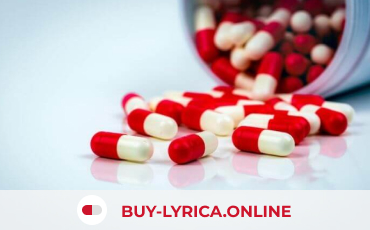
Consequences of using the pills
Most drug addicts consider pregabalin to be a drug of universal importance – in therapeutic or low doses it helps to alleviate the symptoms of drug withdrawal, in high doses it helps to get the effect of euphoria and a buzz. The consequences of using Lyrica are the last thing they think about.
Complications caused by recreational use of the drug:
- heart and blood vessels: high blood pressure, tachycardia, arrhythmia, thrombosis, acute heart failure, heart attacks and strokes;
- respiratory tract: nasal bleeding dryness and ulceration of nasal mucosa, pneumonia, pulmonary edema;
- digestive tract: nausea, vomiting, gastritis and gastric and duodenal ulcers, intestinal atony, colitis, pancreatic lesions;
- kidneys: urinary incontinence, kidney failure;
- liver: cirrhosis, liver failure;
- visual organs: burning and dryness of the mucous membrane of the eyes, progressive visual impairment;
- bones and muscles: muscle breakdown, cramps, inflammation and pain in muscles and joints;
- immune system: reduced resistance to colds;
- reproductive system: menstrual cycle disorders, amenorrhea, breast pains and irreversible sterility due to oocyte depletion in women, erectile dysfunction up to impotence and male genital amputation;
- mentality: persistent insomnia, depression, apathy, unreasonable outbursts of aggression, schizophrenia;
- cognitive functions: memory and attention disorders, decreased intellect, destructive personality changes, antisocial lifestyle.
Dysfunctional changes in the nervous system quickly lead to emotional instability of an addict, appearance of inadequate behavioral reactions, personality degradation with distortion of moral priorities and values. Thus, the harm of pregabalin is obvious – recreational use produces all the signs of drug addiction that require referral to specialists and treatment.
Use of Lyrica by Addicts
Most likely, Lyrica has no place in narcology. The drug is needed for people who do suffer from epilepsy attacks and severe physical pain, but not narcotic withdrawal. Individuals with heroin and methadone addictions intentionally take pregabalin to overcome painful withdrawal after hearing about its analgesic and anticonvulsant properties. But it’s not a cure-all – by promoting withdrawal clinics, Lyrica itself forms an addiction.
Most often, heroin addicts switch to pregabalin. They claim that its drug effects are similar to heroin, but the sensation from Lyrica is much “livelier.” Pregabalin also resembles the effects of Vint or methamphetamine, but in a milder form and with fewer side effects. In some cases, experienced addicts who have previously used methadone or heroin are unable to appreciate the recreational effects of Lyrica because of their tolerance to opiates, so they refuse to continue using it.
To enhance the narcotic effect, Lyrica is mixed with any psychoactive substances (surfactants) both before and simultaneously after their use. For example, a popular scheme is the combination of intravenous heroin administration in the usual dose and taking pregabalin, which gives a longer and brighter effect of the seizure.
Also, drug addicts consciously combine pregabalin with alcohol, wishing to enhance and prolong the narcotic effect of Lyrica.
Simultaneously with the recreational use of pregabalin, there are indeed addicts who use the drug to ease withdrawal. However, only a small percentage of them take the drug in accordance with the recommended therapeutic doses, not more than 2 capsules per day, while others drink the drug in packs and quickly get hooked on it.
The most erroneous misconception among drug addicts is that Lyrica helps “get off” drugs because of its therapeutic potential. But this is not the case. Certainly, pregabalin is endowed with such capabilities, but on the condition that it is diagnosed beforehand in doses individually selected by the doctor. In other cases, the drug is difficult and unsafe.
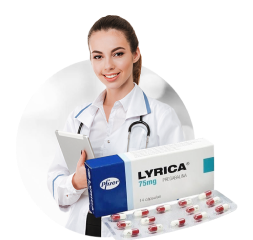

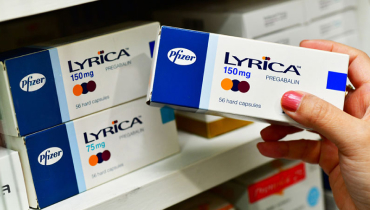
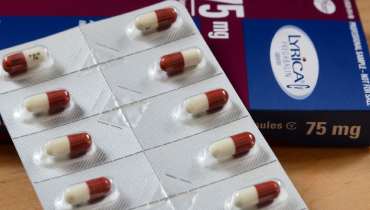
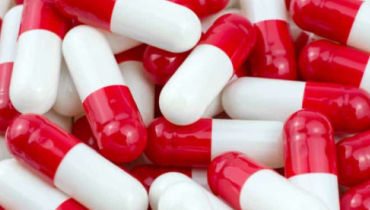







I received the package a few days ago. Thank you so very much! Everything was perfect. I do appreciate your great service and will most definitely order again from you. I'm glad to say that I can recommend you with total confidence. Thanks
Yeah! The package arrived very quickly. Thanks!
Everything is fine! Thanks!